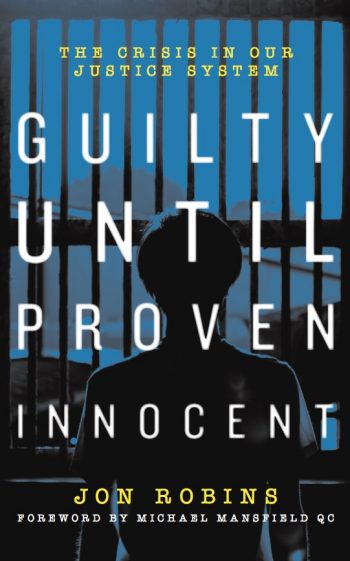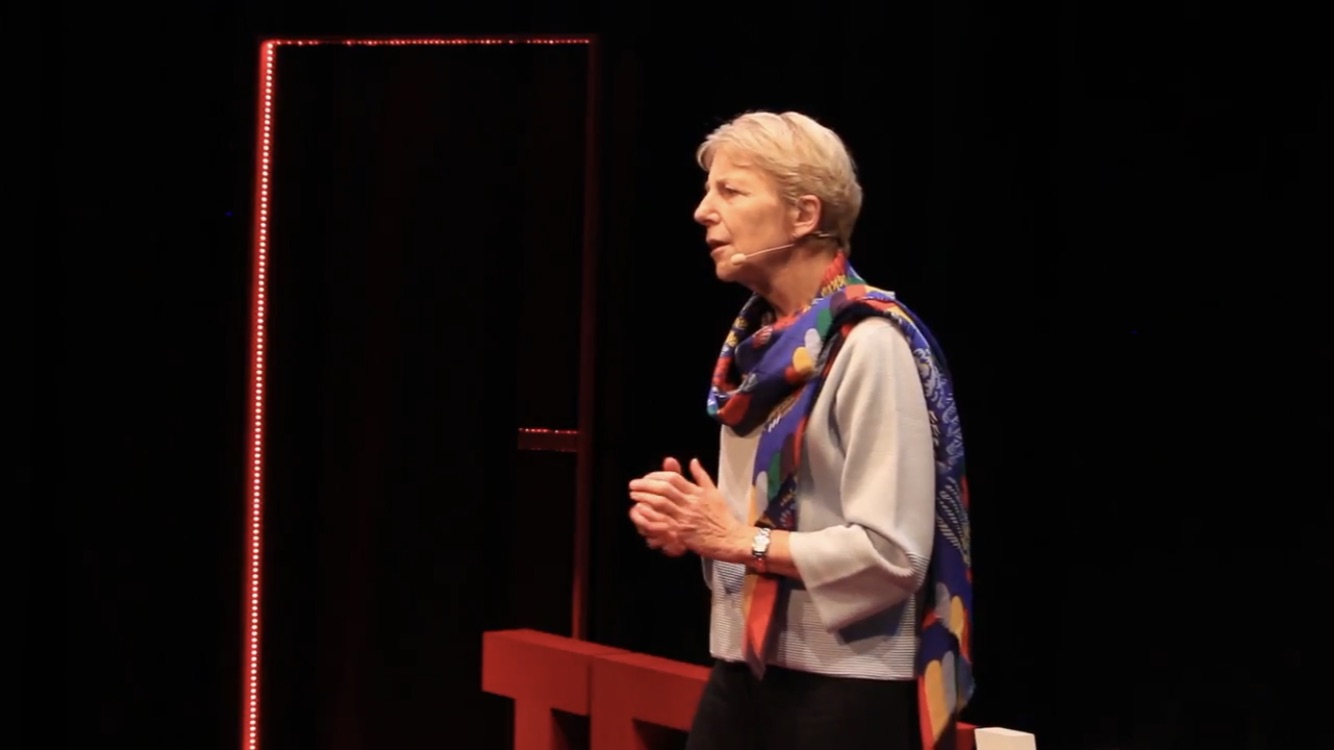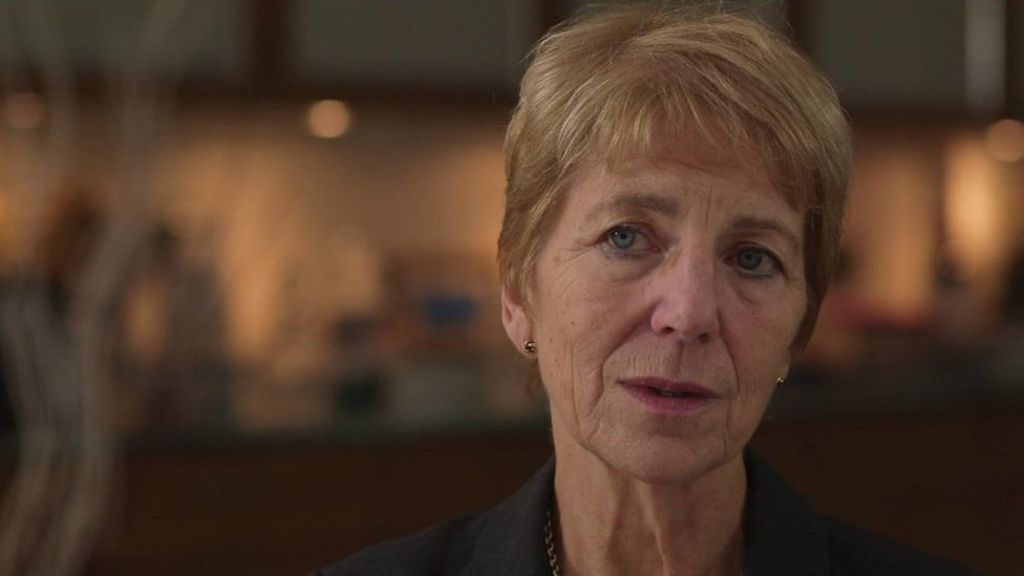INTERVIEW: Parents are being left defenceless against unfounded allegations of abuse, reckons Dr Waney Squier, the leading shaken syndrome sceptic currently barred from giving evidence in our courts. She talks to Jon Robins
In April 2012, the BBC crime drama Silent Witness featured a two-part episode about a ‘Dr Helen Karamides’. ‘It was clearly meant to be,’ the controversial neuropathologist Dr Waney Squier tells me.
It must be odd to watch a fictional representation of yourself in a prime time television drama and, downright disturbing, when you consider the grim fate that befell her character. ‘Dr Karamides’ makes a series of misdiagnoses, ends up being investigated by the Human Tissue Authority for illegally harvesting dead infants’ brains for research before turning to drink and taking her own life.
The mainstream medical orthodoxy is that a combination of symptoms (known as ‘the triad’) – swelling of the brain, bleeding between the skull and brain, and bleeding in the retina – indicates trauma through shaking. This is better known known as Shaken Baby Syndrome and is perhaps the most contentious intersection of medicine and law.
Speaking out against the status quo is not without risk – that was the subject of Susan Goldsmith’s excellent The Syndrome film (as reported on the Justice Gap here). The highest profile critic of the triad is Waney Squier, formerly a consultant neuropathologist at the John Radcliffe hospital in Oxford. She is reckoned to have written reports and/or testified in more than 160 cases in Canada, Germany, Hong Kong, Iceland, Ireland, Israel, The Netherlands, New Zealand, Sweden, Switzerland, the UK and the US.
Dr Squier has been silenced – at least as far as the courts are concerned. In 2016, she was banned from practising in the UK when the General Medical Council ruled that she had given irresponsible and misleading evidence in court. Her licence was reinstated after a successful appeal. However one of the few doctors prepared to challenge the science behind shaken baby syndrome has been prevented her from appearing in court for three years.
- Dr Waney Squier was interviewed for Guilty Until Proven Innocent: the crisis in our justice system which was published by Biteback Publishing.

- You can buy the book here.
Not that that will keep Dr Squier quiet. In a recent TED talk, the doctor argued that there was no ‘scientific justification’ to make the assumption that a baby who has the triad or any one of its components must have been shaken. ‘What we do have is a hypothesis that is not fit for use as a diagnosis or in the courts,’ she told the audience.
‘Highly competent, experienced doctors are afraid to become expert witnesses and to challenge the hypothesis for fear of suffering the same fate as me. Instead, prosecution experts are emboldened and cases are now routinely decided on the basis of opinions such as ‘it is generally considered’ or ‘most doctors believe that shaking causes the triad’. These are articles of faith, they have no scientific foundation. Science is not a democracy, scientific fact is determined by experiment and observation, not by the number of people who happen to believe in one or another particular hypothesis.’
Dr Waney Squier, from her TED talk
It is not known how often shaken baby syndrome is cited in our courts. According to an investigation by the BBC’s Panorama team in 2016, there were more than 100 cases. Dr Squier reckons that there might be as many as 250 such cases a year.
In a 2009 paper for the Washington University Law Review, Professor Deborah Tuerkheimer said that the symptoms in their classic formulation were as close to ‘a medical diagnosis of murder’ as it was possible to imagine. Tuerkheimer, formerly a prosecutor in the Manhattan District Attorney’s office, argued that scientific thinking had accepted that the symptoms might well have natural causes. But, she argued, that the courts had not caught up with the science and the result was ‘a criminal justice crisis’. Tuerkheimer has since said that there could be more than one thousand innocent people in US prisons now convicted on the basis.
Last year a major study by the Swedish agency for health technology assessment added to such concerns. It published a review of over 3,700 research papers and found only two were of ‘moderate quality’ – as reported on the Justice Gap here. The ‘methodological flaws which characterise this field of research’ troubled the report’s authors. It noted that features of the scientific literature was ‘circular reasoning and inadequate presentation of data collection’.
Dr Geoff Debelle, the Royal College of Paediatricians and Child Health’s child protection officer, was unimpressed by the Swedish recent (‘very poor methodology’). ‘So called experts use highly selective evidence,’ the doctor told me; adding that he was not specifically talking about Dr Waney Squier. ‘She is a pathologist of repute, there is no doubt about that. But I don’t think has ever seen a live child and how they present at hospital.’
Instead, Dr Debelle reckons the most recent study points to about 24 such cases per 100,000 live births. He is a consultant paediatrician at Birmingham Children’s hospital and he claims that there were three cases in the paediatric intensive care unit in his hospital when we spoke. ‘We get about one a month,’ he added.
Dr Debelle believes that there is a major preventative public health program needed for new parents. ‘There does seem to be a reaction to infants persistently crying: where you pick up a child, they still cry and then you lose it. It is tragic.’
Switching sides
When Dr Squier first began giving expert evidence, she appeared for the prosecution and would herself cite the triad as conclusive of abuse. ‘I was just an ordinary day-to-day working neuropathologist who happened to be fascinated by the development of a child’s brain,’ Dr Squier says. ‘For 34 years I studied the brains of babies who died either shortly after birth or in childhood or at the termination of pregnancy or miscarriage. I was totally enthralled by what was going on.’
She went along with what she had been told at medical school until about 2000. ‘I don’t know how many cases I have written reports on saying this baby’s brain is swollen but because there are retinal haemorrhages and subdural haemorrhages, it was shaken baby syndrome,’ she said.
What changed her mind was a paper by Dr Jennian Geddes, a neuropathologist colleague from London, who showed that the brain damage in babies alleged to have been shaken was not due to tearing of the nerve fibres of the brain but to lack of oxygen. This was a finding that was common in babies dying from many natural illnesses and in babies who have collapsed and died after being nursed on a ventilator. As a result of the Geddes research, Dr Squier went on to read everything she could about shaken baby syndrome.
The doctor was startled to discover that there was, in her opinion, no scientific support for the shaken baby hypothesis.
According to the doctor, some years later brain scans showed that almost half of new born babies had subdural haemorrhages and retinal haemorrhages. These features were also seen in young babies dying from a whole range of natural illnesses, including minor accidents and low falls.
So, Waney Squier switched sides. She began to give evidence for the defence. In one case, Lorraine Harris, she originally provided a report arguing that the baby had injuries consistent with shaking but subsequently backed her appeal. See below.
In 2008 Suzanne Holdsworth was acquitted of murder and manslaughter. She was jailed for life three years earlier after being found guilty of murdering two-year-old Kyle Fisher, who died from severe brain damage while in her care.
The prosecution alleged that Holdsworth had smashed Kyle’s head against the banister at her home with as much force as a 60-mph car crash. There was no forensic evidence – no blood or hair on the banister. ‘They didn’t do a DNA test on the alleged murder weapon,’ the accused’s partner, Lee Spencer, later told BBC Newsnight. ‘I’m no Sherlock Holmes, I drive a cement mixer, but what kind of investigation was that?’
Defence experts, including Waney Squier, identified five separate brain disorders. ‘That child obviously had multiple injuries. He had been to casualty so many times,’ Dr Squier recalls. ‘Nobody took it seriously. We don’t get these things right. We focus on this idea of shaking to such an extent that we miss all these obvious signs along the way. His mother demonstrated that she was not fit to look after him.’
Just one look at Kyle Fisher revealed that something was profoundly wrong. The baby had an obviously enlarged head and a drooping eye. Kyle allegedly fell from his pram on to a fire prong, puncturing his eye socket and stabbing his brain. This happened when he was in his mother’s care.
Holdsworth spent three years in Low Newton prison before the Court of Appeal her conviction was declared unsafe after new medical evidence emerged suggesting Kyle may have died from an epileptic seizure. I interviewed her and her partner Lee at their home in Leeds the year shortly after she was released for a short film for the Guardian (here). She was so traumatised by the experience that she could barely talk about without breaking down. ‘When I got prison, I didn’t know what I was doing there,’ she told me. ‘Prison officers would come to me later saying: ‘Do you remember me?’ I saw you when you came in. They told me I was just oblivious to everything. All I was doing was sitting in a corner crying.’
 A 21st-century inquisition
A 21st-century inquisition
On September 13, 2010 Detective Inspector Colin Welsh, then lead investigator with Scotland Yard’s child abuse investigation team, addressed a conference in Atlanta, Georgia. His session was called ‘A National Co-ordinated Approach to Cases of Non-Accidental Head Trauma in the UK’.
An American lawyer called Heather Kirkwood, who had worked with Squier, recognised Welsh’s name, attended his session and scribbled down notes as fast as she could. She was a former senior attorney at the Federal Trade Commission working on mergers and would represent the US government on that basis in international meetings.
Kirkwood later signed an affidavit swearing that her notes were an accurate although not verbatim record of what was said. ‘Shortly into the talk, I realized that the ‘national coordinated approach’ referenced in the title of the talk was essentially a description of the joint efforts of New Scotland Yard, prosecution counsel, and prosecution medical experts to prevent Dr Squier and Dr. [Marta] Cohen from testifying,’ she wrote.
Earlier that year the barrister Michael Turner QC rang Dr Squier in her Oxford office demanding to know why she had not told him that she was going to face a General Medical Council hearing. That was the first she had heard of it. The same year Dr Squier was reported to the Human Tissue Authority for retaining human tissue which, if true, was a criminal offence. The accusation was found to be without foundation.
In April 2012, the BBC crime drama Silent Witness aired. According to Dr Squier, the BBC’s pronunciation unit rang her up 18 months earlier to check her name and that of another shaken baby syndrome sceptic (Scheimberg). Apparently, a character was going to mention their two names so as to avoid any inference that the fictional Dr Karamides was a representation of either doctor.
Dr Squier complained to the BBC saying that the portrayal of Karamides was ‘professionally damaging’ and harmed her reputation ‘casting doubt on my integrity as well as reflecting badly on my profession as a whole’. The suicide of the main character was ‘disturbing to me and my friends’ and ‘extremely painful and distressing’ to her daughters.
In March 2016 Dr Waney Squier was banned from practising. She was found to have lied and misled the courts in a determination by the Medical Practitioners Tribunal, the GMC’s disciplinary arm. More than 250 doctors, academics, and lawyers had urged the regulator to rethink its decision to strike off Squier. The GMC has insisted that the allegations it brought against Dr Squier were not about ‘the validity of her scientific theory’ but about ‘her competence and conduct in presenting her evidence to the courts’.
In an open letter to the British Medical Journal published, the signatories, led by Irene Scheimberg, argued that ‘the GMC’s decision was depriving patients of Squier’s ‘invaluable contribution’ to developmental neuropathology‘. Leading human rights lawyers, including Michael Mansfield and Clive Stafford Smith, accused the regulator of conducting itself like a ‘21st-century inquisition’ in a letter to the Guardian.
Later that year the doctor received a Champion of Justice award at the annual Innocence Network conference in San Antonio, Texas.
‘Her influence has been felt around the world, as she has written reports and/or testified in more than 160 cases in Canada, Germany, Hong Kong, Iceland, Ireland, Israel, The Netherlands, New Zealand, Sweden, Switzerland, the United Kingdom, and the United States. Her work had contributed to at least 19 exonerations in the United States.’
Innocence Network’s Champion of Justice award citation
One senior lawyer involved in the GMC’s proceedings, Michael Birnbaum QC was so moved by the perceived unfairness panel’s slight five-page ruling that he wrote a 66-page analysis. ‘In my 43 years of practice at the Bar I have rarely read a judgment of an English court or tribunal so deeply flawed and unfair as this,’ it began.
Eight months after being struck off, Dr Waney Squier had her licence reinstated. She was cleared of dishonesty having successfully appealed. In November 2016, Mr Justice Mitting in the High Court found ‘serious irregularity’ on the part of the GMC’s tribunal. Although, he said that it was entitled to find that she had ‘failed to work within the limits of her competence and to be objective and unbiased’.
The judge was highly critical of the tribunal’s ‘flawed proceedings’ and found that its finding that Squier had committed perjury was ‘unjust’.
Dr Waney Squier is still prevented from giving any expert evidence in court. The ban lasts three years. ‘It’s an absolutely huge loss,’ the solicitor William Bache told me. In his 50-year legal career, he reckons to have acted in about 25 shaken baby syndrome cases and represented Angela Cannings, who in 2002 was wrongfully convicted of smothering her two baby sons. ‘Not only have we lost Waney Squier but we have lost other people who have been prepared to say the sort of things she does.’
Not a dystopian tale
On December 4, 1998 Lorraine Harris took her four-month old baby, Patrick for his third immunisation. Early in the hours of the following morning, she rang her GP because she was concerned about his breathing. The doctor noted that his temperature was up but his chest was clear and, although snuffly, he appeared fine. He left the house at 1:30 AM.
An hour later Lorraine Harris rang 999 reporting that she could not wake Patrick up. The ambulance crew tried to resuscitate him but could not find a pulse. He was taken to Derby children’s hospital and placed on a life-support machine. Patrick died on December 6th. A post-mortem found swelling of the brain, small amounts of subdural haemorrhaging and extensive retinal haemorrhaging. Harris was interviewed and charged with manslaughter.
On September 7, 2000 Lorraine Harris was convicted and sentenced to three years’ imprisonment. The family approached the solicitor Campbell Malone, the solicitor who acted for Stefan Kisko and Eddie Gilfoyle, having been advised by her lawyers that they could see no grounds for an appeal. The new legal team was able to cite the Geddes research and as a result her conviction along three others was overturned in 2005.
It was a landmark ruling.
But it was too late for Lorraine Harris. Her life was ruined. Baby Patrick had died and was buried without his mother even being told. Her relationship with the father collapsed. Whilst on bail awaiting trial, she became pregnant and gave birth to another child whilst she was in prison after her conviction. That child was taken from her and placed for adoption and even after the appeal she was not allowed contact.
‘This is not some dystopian nightmare but a true story. It is a story repeated day in, day out, all around the world. In the USA there are some 2,500 thousand people in prison, five on death row, awaiting their execution. In this country the story is repeated in our courts hundreds of times a year. It is heard in Sweden, France, Australia, New Zealand.
What all these stories have in common is that a doctor has made a diagnosis of shaken baby syndrome.’
Dr Waney Squier
This was published on June 9, 2018







